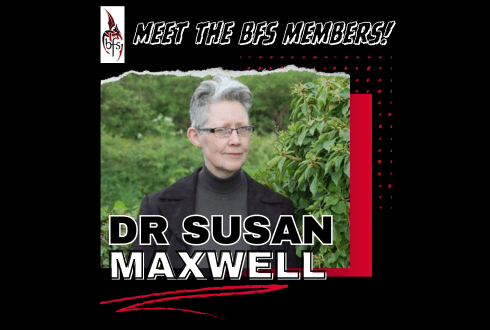Every Friday, we meet a member of the BFS and peer deep into their soul (or, at least, a form they filled out). Want to be featured? Email us: online@britishfantasysociety.org
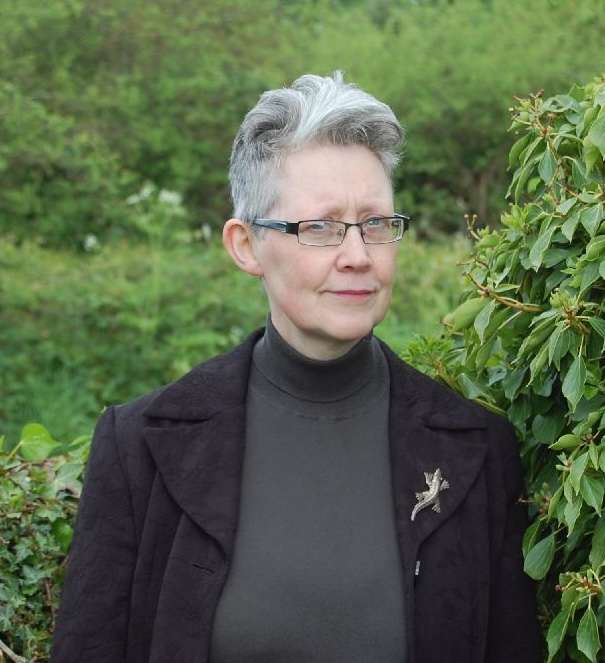
Name, including preferred pronouns:
Dr. Susan Maxwell (they/them)
Which region are you based in?
I’m in Ireland.
If you write, which genre:Â
Those of my books accessible to younger readers can be classified as fantasy—or perhaps better, science fantasy: they are neither high fantasy nor hard SF, but deal with a technomantic version of the real world that intersects with a more mythological parallel world. This is most obvious in And the Wildness.
My books for adults are less easily classified: literary fiction with strong elements of irrealism. They lie in the literary regions sketched out by Readercon’s Canon of Slipstream Writings and John Clute’s concept of Fantastika; my novel Hollowmen and short story collection Fluctuation in Disorder are in this vein. Let’s just say that you are more likely to wake up to the discovery that you are a giant insect than that you are the Chosen One…
If you don’t write, what do you do?
As well as writing I’m an archivist & records manager in the civil service. I paint when I’m not writing, and I’m also a neophyte horticulturalist: on the long, rocky road to self-sufficiency in food, via seven acres of (currently uncultivated) land and two (cultivated) polytunnels.
(Pictured: one of Susan’s artworks, titled “The Shining Ones”.)
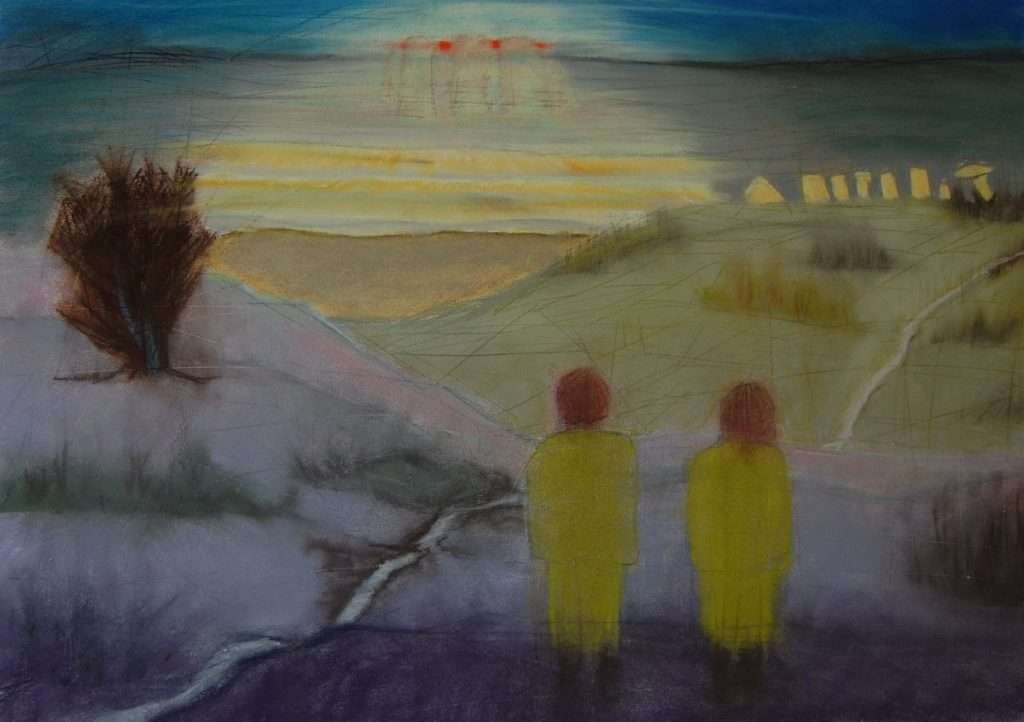
Are you drawn to any specific SFFH sub-genres?
No. I don’t pay a lot of attention to genres, to be honest; I am of Le Guin’s opinion that genres are for marketers, not for writers. I’m not keen—in any genre—on very heightened writing registers, on narratives heavily focused on people’s emotions, or on extremes of on-page brutality, but other than that, I’ll give anything a shot, and it will be down to the skill of the writer.
Your influences
Tell us about the book/film/thing that got you into SFFH: What was it? How old were you? What impact did it have on you?
The first story to which I recall responding to as a creative work, rather than just responding to the narrative, was M.R. James’ ‘Lost Hearts’. I was twelve, and my brother gave me Enthralling Mystery Stories, which had several excellent ones in it. I was terribly impressed with the confident way James presented a realistic world, and then, without any real change of tone, fatally overturned it. It was the first story I recall re-reading in order to see how he did it, and the first story I read that made me want to write.Â
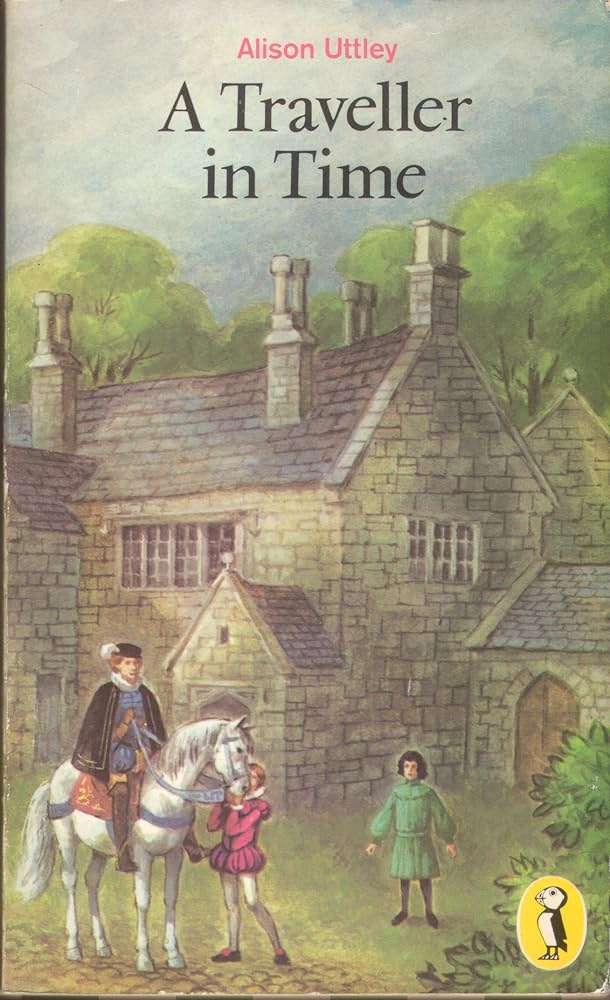
I read fantasy when I was a child: I repeatedly borrowed from the library a book called Strangely Enough which was a compendium of weird things presented as facts (some I think contained factual elements, like stories from the Bermuda Triangle). I was particularly drawn to strange-but-true, or stories where consensus-reality was disrupted (as in time-slip stories, like Alison Uttley’s A Traveller in Time), rather than different worlds, like Narnia (which I enjoyed when I started reading them, aged about seven). I enjoyed myth and folklore enormously, especially Irish and British. I have always been enchanted by the idea of the otherworld being right on your threshold, and by expecting it to be utterly unlike our expectations.
Other books, from later but before I started writing seriously, that I recall striking me very specifically because of their way of upending ‘reality’ were Woolf’s Orlando, and Flann O’Brien’s The Third Policeman; and for his particular way of world-building, Iain M. Banks’ Consider Phlebas.
How does that early influence show up in your writing now?
I write low-fantasy skewed realism; location, and the political and administrative structures of that location, are key, and are based on places and structures I know well. It is through these that fantasy/horror/the weird emerge. Worlds, the invented and the consensus-reality, are in extremely close proximity to each other, and characters often spend quite a long time at the threshold, especially when dominance is about to slip from the hands of one into the other. Not everything is resolved. Also, I draw on (or ‘shamelessly pillage’) myth and folklore, especially from Ireland and Britain, for inspiration, sometimes for characters or settings.
Where do you draw your creative inspiration from?
Anywhere at all. I have creative responses to the illogicalities of everyday living in a late-capitalist consumer society that’s looking down both barrels of ecological collapse. I don’t write to make a political point, but I do write to look under the bonnet of what appears to be ‘the way things are’ and see if it reveals anything about the way things might be. I have a strong interest in history—especially late-antique and mediaeval—and also in archives (both actual institutions and cultural concept) as sites of othering, and as texts.
(Pictured: Susan in the natural world, with skeleton friend)
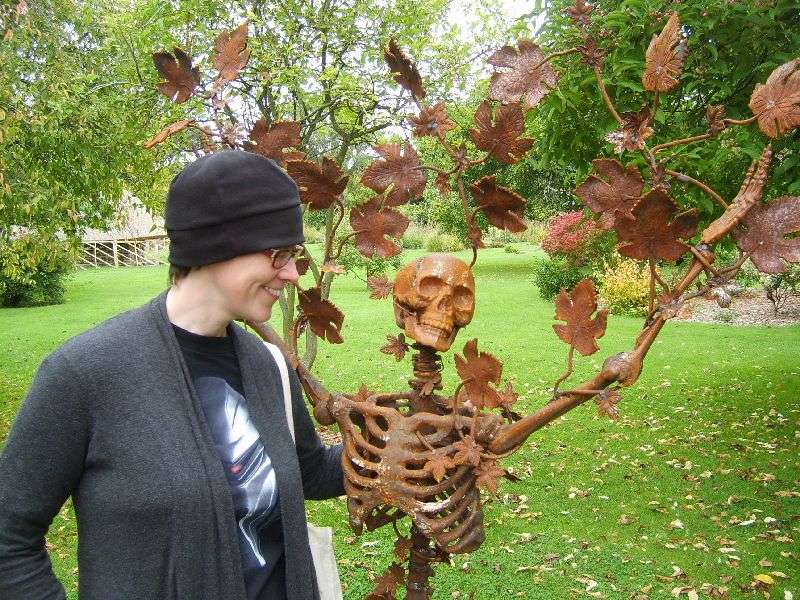
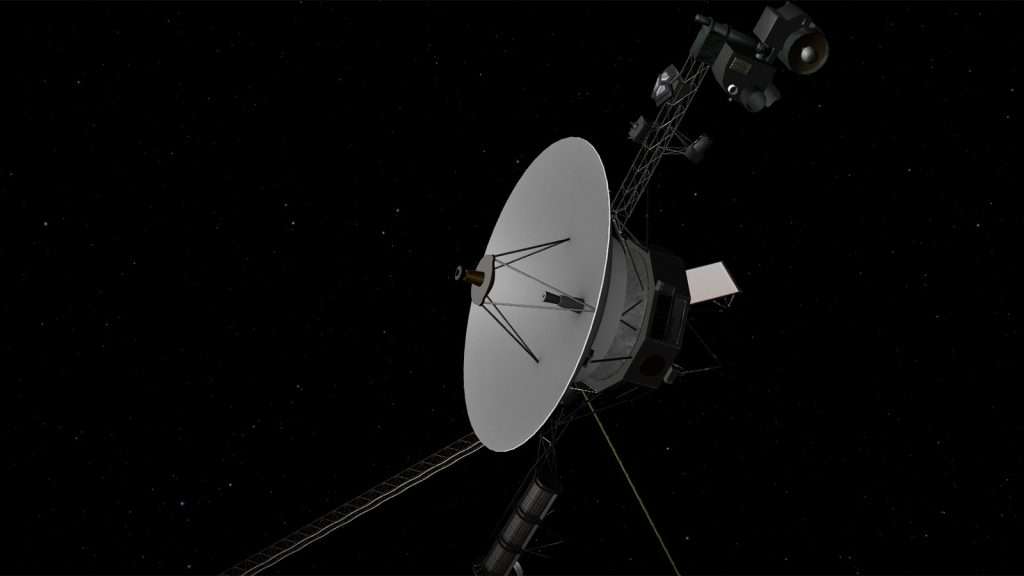
Though I have only a layperson’s analogous understanding of science, I greatly enjoy reading popular works on science, and very often will get an idea from a scientific concept (like, say, entanglement), untroubled by the fact that I very likely have the wrong end of the scientific stick.
(Pictured: Voyager 1, “endlessly inspiring”, says Susan.)
The natural world is endlessly fascinating, and I find it inspiring to engage with, either by being out walking in it (when the weather here allows) or through horticultural pursuits.Â
(Pictured below: Susan’s horticultural pursuits on their ‘small landholding’)
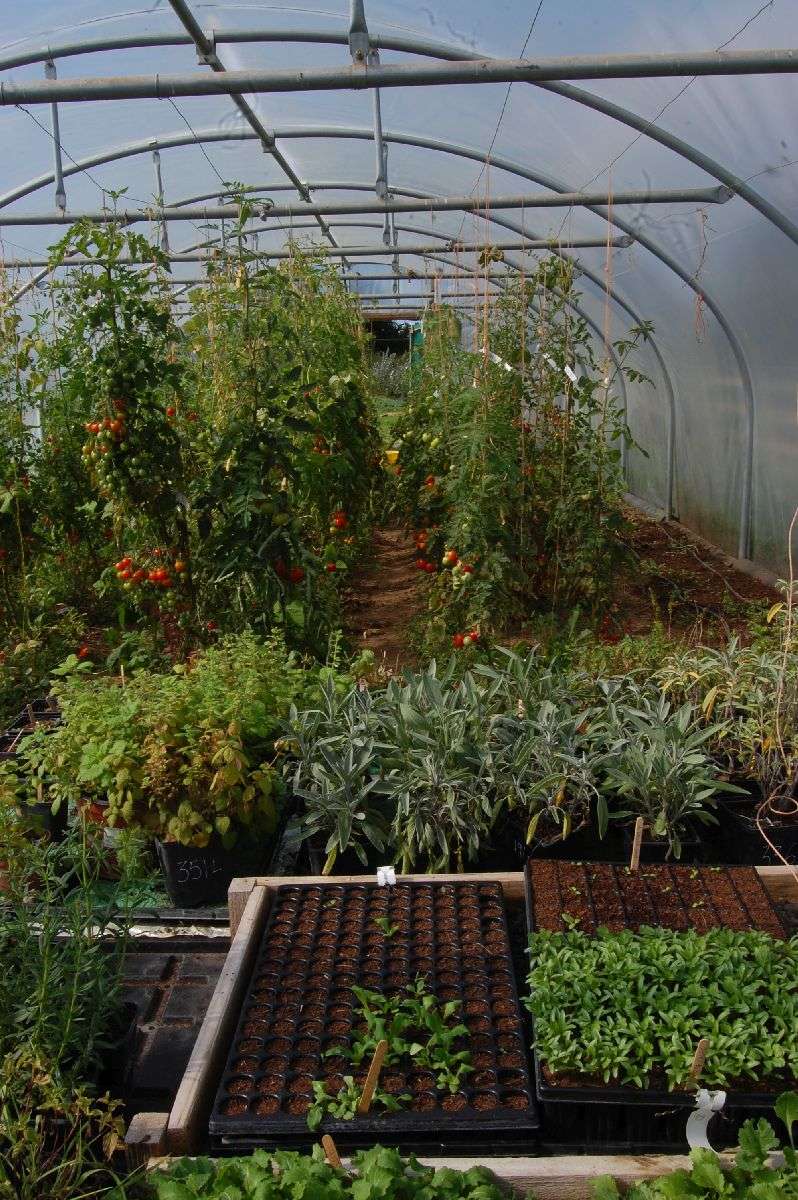
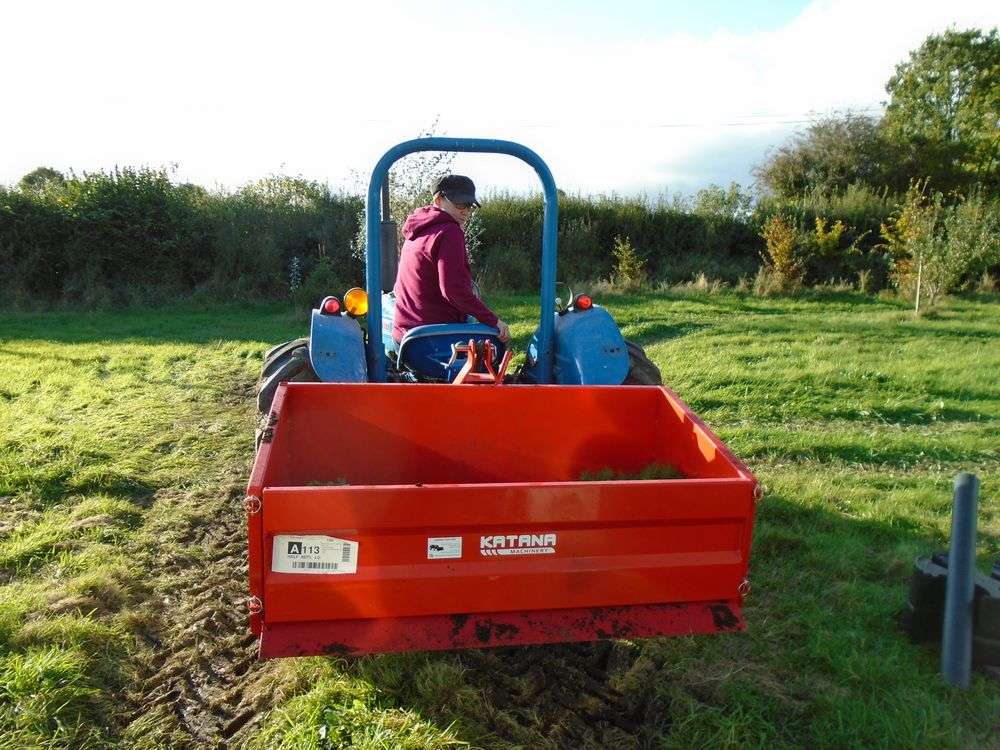
Who do you look to as a genre hero? Why?
M. John Harrison. No, H.G. Wells. No, wait, Ursula le Guin. No, Robert Aickman. Feck. How big is the elevator?
Your work
You’re stuck in an elevator for 60 seconds with that hero, and they want you to describe your work. Give us the pitch.
Given my mortal social incompetence, I’m not sure I’d get the words out, but I would go for:
I write literary slipstream/irreal SFF for adults in which case it is either bureaucratic-gothic or post-human future, and also for younger readers, in which case it is a myth-inspired, steampunk-ish adventure.
What are you working on right now?
I’m finishing a non-fiction chapter for an academic book, based on a conference paper I gave about archives as Gothic spaces. I resolved to write (or at least draft) a short story a month this year, so I am just starting April’s story (as I write this profile). I have begun to revisit a novella, currently called The Name of the Bears, that I started last year. And, as I always have a shoal of projects at the same time, I am working on the second in a set of four short stories to follow on from And the Wildness (the first book I indie-published).
Thinking about all the stories/work you’ve done, what sticks out most in your mind? Why?
At the moment, I am proud of a short story called ‘Each Tether Has Its End’, which is included in the collection Fluctuation in Disorder. I often (though not always) write to music, and this story is the closest I’ve managed to getting onto the page what I had in my mind. It’s kind of nihilistic and violent, but I think ultimately positive. Depending on how you look at it.
Hollowmen is the first experimental work I have done in long-form; it’s flawed, but it has a lot of vigour, and some of the experiments worked.
I have just published the second novel in a sequence suitable (though not intended solely) for younger readers: I had a ball creating the alternative reality of Muinbeo, and I think it is quite fun.
Where and when do you create/are you at your most creative?
It can take me a little time to warm up creatively, so if I can start early in the morning, around 6:30 or 7:00, then after two or so hours I’m probably as creative as I’m going to be that day.
Since the private-income fairy failed to turn up at my christening, I have a job, so on days I’m being an archivist, I write around the working hours. I have less time during the growing season, but then more time during late Autumn and Winter.
In cold weather, I work at an upstairs desk in my (tiny) house, in good weather, I work in my ‘studio’ (it’s a tiny shed in the field) where I also paint.
(Pictured: Susan’s ‘studio’)
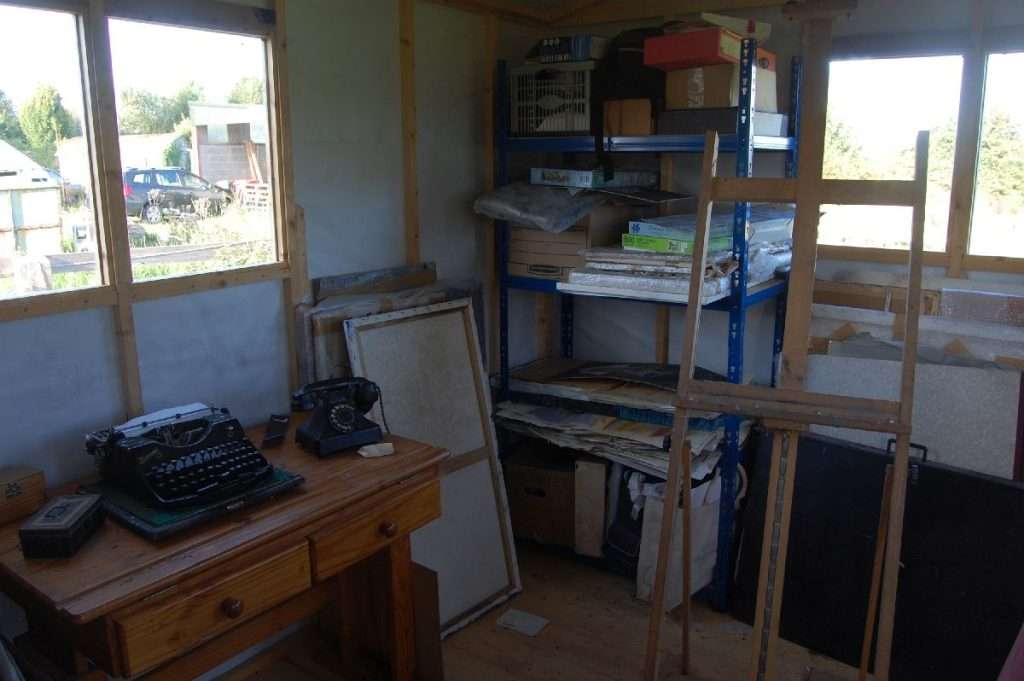
What’s the best advice you’ve received about creativity?
“What others criticise you for, cultivate. It is you†(Jean Cocteau), and show up for your muse, whatever ‘muse’ means (Matt Cardin). In short: you do you, and no slacking.
What’s your writing soundtrack?
I don’t usually have music on in the background while I am writing, though I might put on some choral music to recalibrate if I am having trouble concentrating; someone familiar (like William Byrd). Other than that, it will depend on what I am writing. I sometimes play music to get into a particular mood, or as a way to get ideas for a particular sensibility before I start writing, and that really could be anything: Renaissance or contemporary choral, late 1970s/early 1980s punk/new wave, folk, Dead Can Dance, Western classical, Rocky Horror... There are occasions where I write to a particular piece of music (Each Tether…was written to a movement from Schnittke’s Faust Cantata), but that choice is usually random.
The quickfire round
Sci-fi, fantasy or horror?
Any that appeal.
Quiet or loud?
Quiet.Â
Dark or light?
Twilight.Â
Strict lines or genre blend?
Abandon.
Awards or bestseller?
Away with these either/or notions—I’ve always been a both/and kind of entity!
Fiction or non-fiction?
Both, for reading and writing.
Poetry or prose?
Both, for reading and writing.
Plotter or pantser?
Usually plotter, leaving oodles of space for serendipity and chaos. There are exceptions.
Reading or listening?
For books – reading. I love radio dramas, though.Â
Notebook or computer?
Both.Â
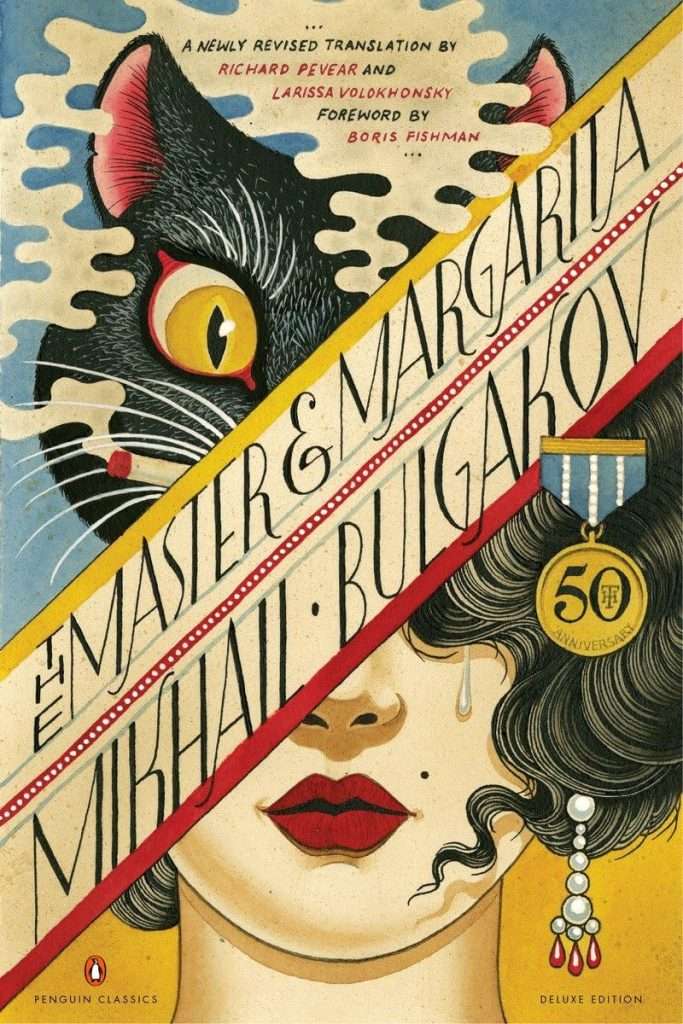
Favourite SFFH book of all time?
Piranesi? The Castle of Crossed Destinies? The Sunken Land Begins to Rise Again? At Swim-Two-Birds? Cold Hand in Mine? The Machine Stops?
Last book you read?
I’ve just finished for the second time The Master and Margarita by Mikhail Bulgakov, and a book of short stories by Paul Carroll. Current reading isn’t SFFH (it’s Iris Murdoch’s A Severed Head). Next up is non-fiction (a collection of critical essays on Henry James’ The Turn of the Screw), and then M. John Harrison’s The Course of the Heart.
Any SFFH author on auto-buy?
M. John Harrison. Most of the rest of my favourites are dead.
Favourite podcast?
Weird Studies. I enjoyed The Lovecraft Investigations, while they lasted, and now The Magnus Archives. I regularly listen to Backlisted and Sticky Notes, and recently started listening to Fabula Celtica. Emma Newman’s Tea and Sanctuary is simply lovely.
The home stretch
What’s the best thing about being part of the SFFH community?
SFFH has a tradition of dealing with ideas more than (even if alongside) people’s lived experiences or emotions, and of hospitality towards alternatives to reality. I am always suspicious of anything (politicians, novels) that try to be authoritative about the ‘way things really are’; to say ‘this is the truth’ is to say ‘that is a lie’. SFFH, especially indie-publishing, has a reputation as a poor-relation when it comes to canonical or ‘literary’ writing: but in literature as in most things, the edges are where interesting things happen. This constant questioning, and this marginality, give the SFFH environment an ambience that I like; it has a dissenting, contrarian feel to it that I appreciate.
Time to plug your stuff! Where can we find you and your work? What have you got coming up? Consider this your advertising space.
Well, the BFS has already plugged my first published novel Good Red Herring far more effectively than I could with this review, so I’ll focus on the works published under my own imprint, Bibliothèque des Refusés. Three novels (Hollowmen, And the Wildness and, a few months ago, A Wild Goose Hunt) have been published under this banner, as well as a collection of short stories (Fluctuations in Disorder). My website has details of all the books, along with links for purchase, my reviews of other books (pictured below), a link to my blog, and some bits about me. I’m also around on Mastodon, Bluesky and Twi…sorry, X, and other social media: you can get all the details via my website or on Linktree.Â

If you’re tempted, but not sure, you can sign up for my newsletter (there’s one about every 4 to 6 weeks); you get a range of writing freebies to try out as a thank-you-and-welcome.
Alternatively, you can hear me reading an abridged version of a short story as part of Glasgow 2024 WorldCon’s indie-author reading library:

